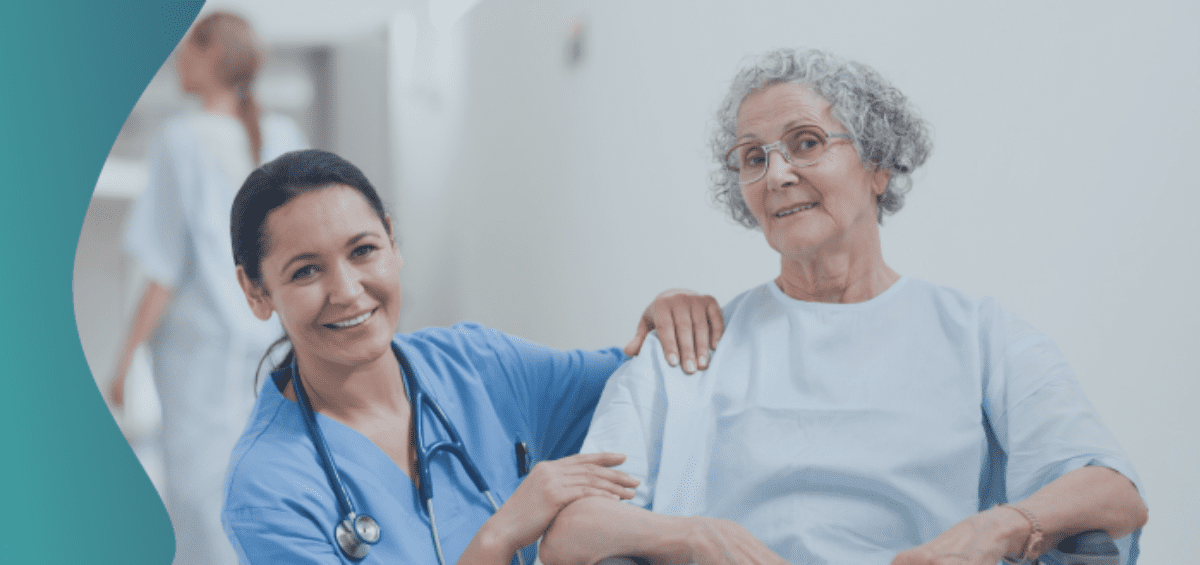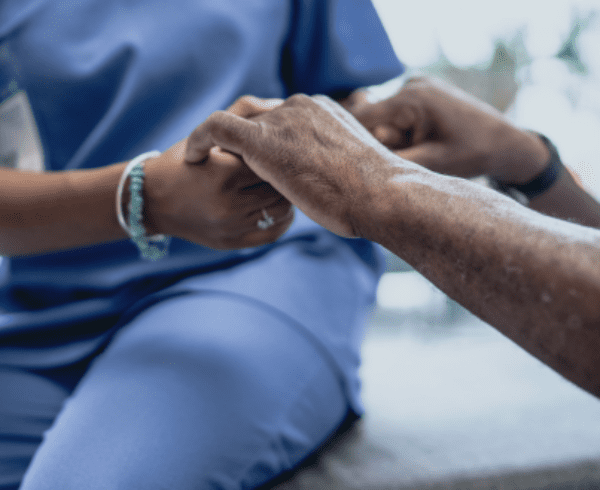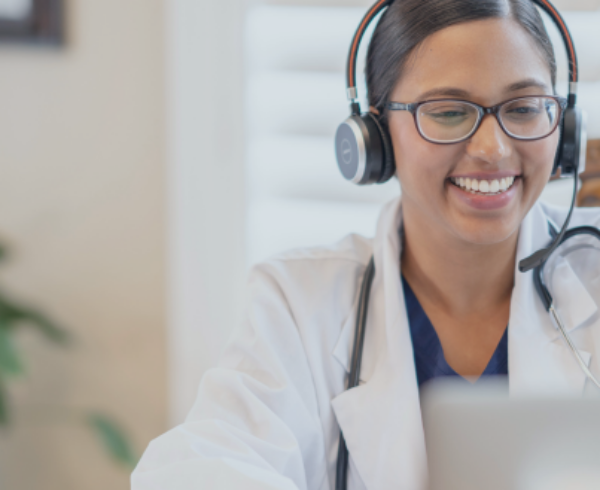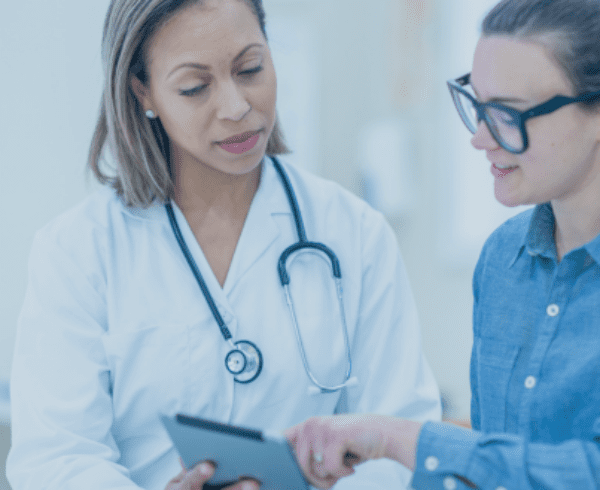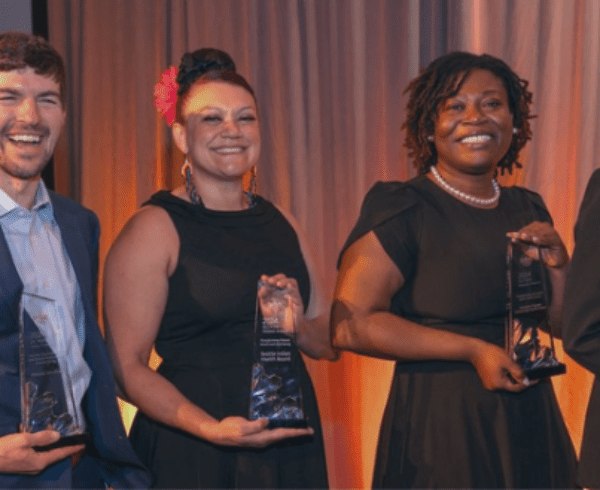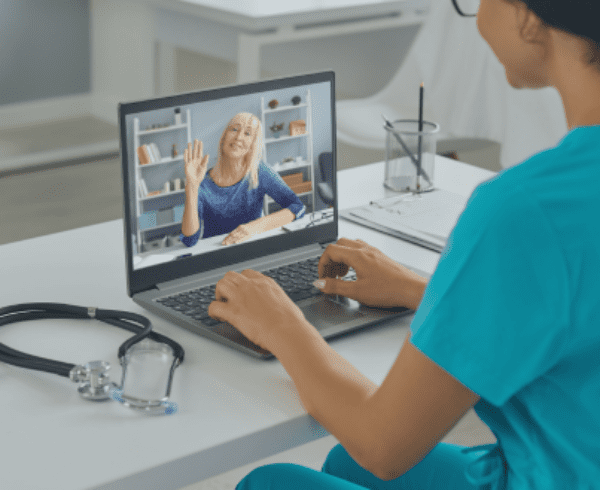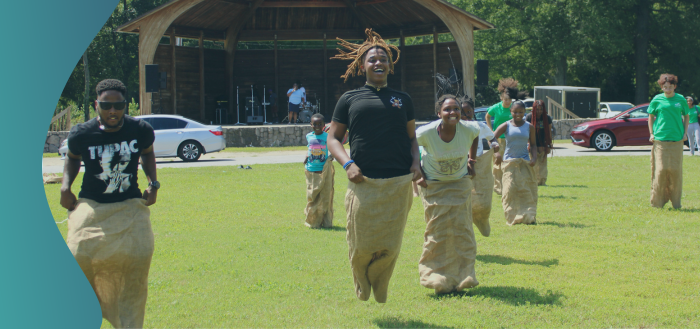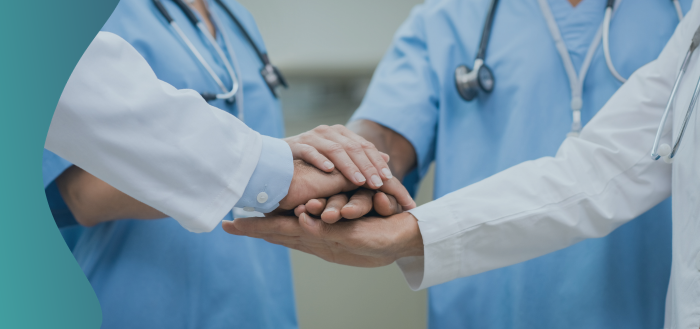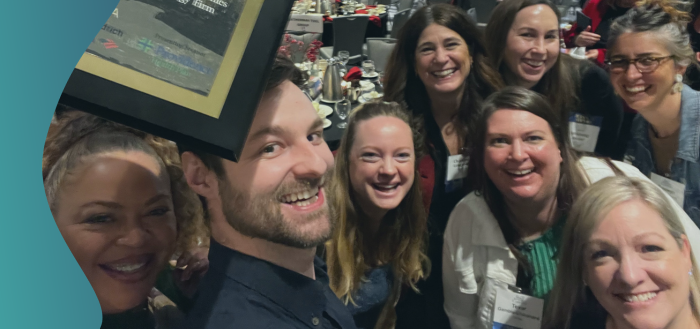December 16, 2020
In the first few weeks of the COVID-19 pandemic, Dr. Caroline Kennedy, Medical Director of Monterey County Health Department (MCHD) in California, was conducting phone screenings of H-2A temporary agricultural workers when she talked to Jorge,* a farmworker. After listening to his symptoms, Dr. Kennedy informed him that many were consistent with those of COVID-19 and he thanked her and passed the same cell phone to the man behind him in line. For the next hour, Dr. Kennedy talked to nearly ten men, some with symptoms and some without, who were all standing next to each other sharing the same cell phone, suggesting that, if they did not have COVID-19 before they talked to her, they likely did now.
“As soon as Jorge handed the phone to the next man, my heart sank,” said Dr. Kennedy. “I thought that I could help prevent these men from getting COVID-19, but the circumstances of their everyday lives make preventive measures difficult and place them at an increased risk of exposure. For me, it really put in perspective what some of our migrant workers are going through and highlighted the important role that we, as health care providers, can play in connecting them with resources to help eliminate barriers in access to health care.”
Legal Support for Patient Health
Even before the pandemic, Dr. Kennedy and her team of providers at MCHD sought ways to help patients address systemic barriers to their health by connecting their patients to legal resources through California Rural Legal Assistance, Inc. (CRLA). Through this partnership, which started in 2017, MCHD providers refer patients to CRLA attorneys for free legal advice to address discrimination and other non-medical factors that influence patient health, such as unsafe housing or employment.
“When patients come into the clinic, you are more than just their doctor,” said Dr. Kennedy. “You are their social worker, attorney, financial advisor, and any other role that you need to play to help them improve their health. Our partnership with CRLA lets us hand off legal issues to someone who is more skilled in that area, while also enhancing our own skills as providers so that we know where to send patients for more help.”
Since 2017, CRLA and MCHD have helped more than 450 patients with more than 650 legal issues. Prior to COVID-19, attorneys were on site at MCHD clinics every week, helping patients achieve justice and improve their social determinants of health, such as food, housing, transportation, and employment. Some examples of ways that CRLA attorneys have helped patients include:
· working with landlords to get bed bugs and mold out of their homes,
· making sure disabled workers get the reasonable accommodations and medical leave they need,
· increasing school-based services for special needs students, and
· connecting victims of intimate partner violence to immigration services.
These services have resulted in more than $425,000 in financial benefits for patients by winning health insurance coverage, recouping unpaid wages, overturning unlawful rent charges, and improving access to public benefits.
One particularly notable success of the partnership was the innovative medical-legal interventions they created to reduce pesticide exposure among pregnant women working on farms that is known to cause reproductive harm. Now, thanks to the advocacy of the CRLA team, pregnant women across the entire state of California qualify for disability pay if they work around pesticides.
“I was dreaming very narrow in the beginning of this partnership and was focusing on what I could do for my individual patients,” said Dr. Kennedy. “The attorneys at CRLA took it to a whole new level and helped us change state policy, which shows the immense value of this partnership.”
Virtual Referrals During COVID-19
At the start of the partnership in 2017, MCHD made each CRLA attorney a provider in their electronic health record (EHR) system, OCHIN Epic EHR, so that the attorneys could receive referrals electronically and subsequently follow-up with patients that may benefit from their services. When COVID-19 hit and CRLA attorneys could no longer visit clinics in person, OCHIN Epic EHR became even more important in facilitating communication and streamlining workflow between the partners, as well as helping MCHD disseminate CRLA’s messages to patients during the pandemic.
For example, MCHD sends texts to COVID-19 positive patients each week to notify them that, if anyone in the household has been affected COVID-19 and has not received replacement income, to call a 1-800 number for legal assistance. Due to the trust that MCHD has built within its community and its ability to use health information technology to get the message out, CRLA says that more than half the calls to this statewide number come from Monterey County.
“None of the work that we do would be possible without the amazing providers and staff at MCHD,” said Aaron Voit, Managing Attorney at CRLA. “It’s truly a privilege to work alongside our health care heroes, and we could not be more grateful to MCHD and our integrated medical-legal model, which has opened doors for CRLA all across the state to do even more to fight COVID-19 in the communities we serve.”
Partnering to Transform Care for the Future
As MCHD looks ahead to the next few months of battling the COVID-19 pandemic, it hopes to continue to use technology to improve care for its patients. The health department is working with OCHIN to begin using WELL, a helpful tool to automate text messages and other patient communication, which will save providers time while improving their ability to follow up with patients.
Looking past the pandemic, Dr. Kennedy hopes that, in the future, more providers have the opportunity to learn about the transformational power of medical-legal interventions in both improving social determinants of health and increasing access to high-quality care so that patients like Jorge have the support they need to achieve their full health potential.
Learn more about the first year of the MCHD and CRLA partnership.
*Patient’s name has been changed to protect anonymity.


